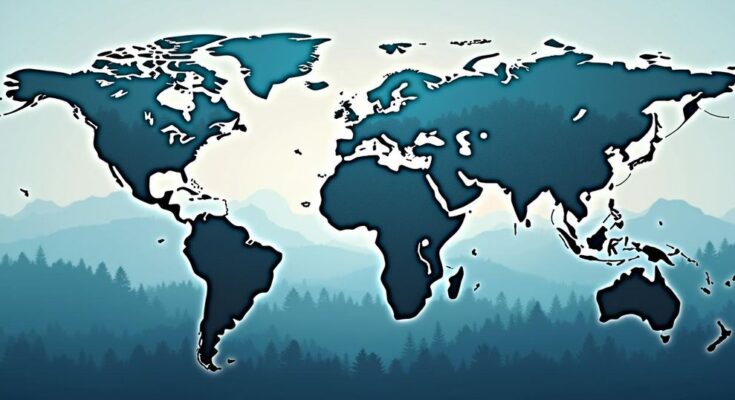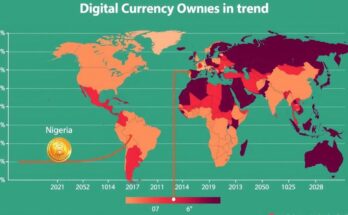Chinese companies have invested more than $100 billion in overseas clean technology since early 2023, aiming to bypass U.S., Canadian, and EU tariffs. As dominant players in electric vehicle, lithium battery, and solar panel production, these investments seek to expand their market share while addressing trade barriers. Notable companies like BYD and CATL are leading this strategic move. Concerns regarding potential market flooding and pricing strategies persist, alongside warnings from Chinese officials regarding the impact of tariff policies on global climate efforts.
Since the beginning of 2023, Chinese entities have invested over $100 billion in clean technology ventures overseas, as reported by the Climate Energy Finance (CEF) group based in Australia. This substantial influx of capital has been strategically directed toward circumventing the punitive tariffs levied by the United States, Canada, and the European Union on Chinese imports. Chinese firms currently possess a commanding presence in global production across vital cleantech sectors, including electric vehicles, lithium batteries, and solar panels. China’s share in the global export market consists of 32.5% for electric vehicles, 24.1% for lithium batteries, and a remarkable 78.1% for solar panels. Nonetheless, this overwhelming dominance has ignited concerns regarding possible market inundation by Chinese companies, potentially leading to price reductions that might undermine international competitors. In response to the imposing tariffs, which include a 100% tariff on Chinese electric vehicles in the United States and additional tariffs of 50% on solar panels and 25% on lithium batteries, Chinese firms are proactively establishing overseas manufacturing facilities. Leading corporations such as BYD have initiated the construction of a $1 billion facility in Turkey, anticipating a potential 40% duty from the EU, while CATL is expanding its production base with facilities in Germany, Hungary, and other strategic locations. Looking further into the future, a report from the Grantham Institute projects that by 2030, a significant two-thirds of China’s cleantech capacity will surpass domestic requirements, necessitating widened export opportunities. It is anticipated that China’s total solar production capacity will achieve 860 gigawatts by this time. Chinese officials have voiced discontent regarding the escalating tariffs, asserting that such measures could impede global climate initiatives. Senior climate envoy Liu Zhenmin stated, “Decoupling from Chinese manufacturing could raise the global energy transition bill by 20%.” This ongoing tension exemplifies the intricate relationship between international climate objectives and competitive market elements, as China continues to strengthen its footprint in the cleantech sector.
The article discusses China’s strategic investments in overseas clean technology projects as a response to international trade barriers that have emerged due to rising tensions with Western nations. With over $100 billion funneled into cleantech since 2023, Chinese firms seek to maintain their global market dominance in crucial sectors while adapting to unfavorable tariffs that threaten their export capabilities. The dynamics at play reflect larger themes of economic competition and environmental concerns amidst a shifting global trade landscape.
In summary, China’s investment of over $100 billion in cleantech projects abroad reveals a calculated approach to circumvent trade tariffs that threaten its market position. With significant shares of the global market in key sectors, such as electric vehicles and solar energy, China’s response to tariff policies not only aims to secure its economic interests but also raises broader questions about global cooperation in addressing climate change challenges. The actions taken by prominent Chinese firms demonstrate a proactive strategy to ensure continued growth, albeit against a backdrop of international trade friction.
Original Source: esgnews.com




